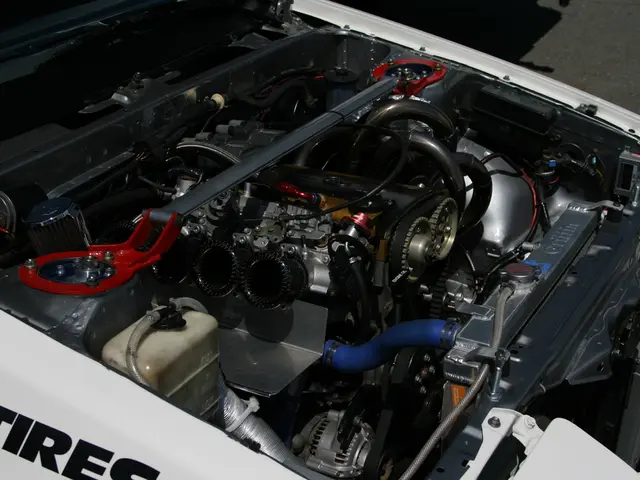Revolutionizing Energy: Magnetic Motors Leading the Way for Greener, More Efficient Power Sources
If you're looking to be on the forefront of energy innovation, magnetic motors should be at the top of your to-do list. These motors, which have gained a significant presence in everyday life, are not only more efficient and silent than conventional engines but also eco-friendly and efficient compared to traditional motors.
Magnetic motors operate on principles beyond conventional physics, harnessing the power of magnetic attraction and repulsion to reduce energy consumption. This unique operation makes them an integral part of the FAQs about their eco-friendliness and efficiency.
Current advancements in magnetic motors focus on novel materials, innovative motor topologies, and optimized magnet technologies that enhance efficiency, reduce weight, and improve performance across various sectors, including energy consumption, transportation, and manufacturing.
Material Science Breakthroughs
One such breakthrough is the use of Soft Magnetic Composites (SMCs), which are revolutionizing electric motor design. SMCs enable three-dimensional magnetic flux paths, reducing eddy current losses, and allowing near-net shape manufacturing. This flexibility supports emerging demands in electric mobility, drones, and industrial automation.
Another significant advancement is the development of Permanent Magnet (PM) Motors, which use powerful rare earth magnets to achieve higher torque density, better low-speed efficiency, and compact size. Recent innovations include advanced magnetic materials that reduce reliance on rare earth elements while maintaining performance.
Optimized Design and Control
Topology Optimization, Finite Element Method (FEM) simulations, and motor control technologies also play crucial roles in enhancing magnetic motor efficiency. FEM simulations optimize magnet placement and orientation to reduce material use, lower torque losses, and improve thermal management in high-performance motors. Integration of wide bandgap semiconductor devices and smart ICs further boosts motor efficiency beyond 97%, while machine learning algorithms enable adaptive motor control that minimizes energy loss and predicts faults.
Strategic Partnerships
Industrial partnerships, such as GM and Noveon’s 2025 deal to produce rare earth magnets domestically, ensure stable supply chains critical for transportation applications. This move supports sustainable manufacturing and reduces geopolitical risks.
Practical Applications
The benefits of magnetic motors extend beyond the lab. In the energy consumption sector, more efficient electric motors contribute to lower energy use in HVAC systems, industrial automation, and household appliances. Advanced motor control techniques allow precision and adaptive energy use, improving overall system sustainability.
In transportation, PM motors power electric vehicles, drones, marine vessels, and defense platforms with improved torque, compact size, and efficiency. Innovations in magnets and motor designs enable higher performance drives and lighter vehicles, improving range and reducing emissions. Motor control advancements facilitate better battery management and vehicle-to-grid functionality.
In manufacturing industries, magnetic motors are core to automated production lines, robotics, CNC machines, and precision tools. Enhanced motor topologies and smart controls provide greater torque accuracy, energy efficiency, and reliability, driving productivity gains and lowering operational costs.
Looking to the future, speculative research suggests experimental devices that harness Earth's magnetic field for energy generation, though these remain controversial and are not yet commercially practical.
In conclusion, the combination of material science breakthroughs, optimized magnet and motor design, advanced electronic controls, and strategic industrial partnerships are driving the next generation of magnetic motors that deliver superior energy efficiency, performance, and sustainability across multiple sectors. The future outlook on magnetic motors is optimistic, with predictions of substantial improvements in efficiency and sustainability, leading to a vision for a future where energy consumption is almost entirely carbon-neutral.
Read also:
- U Power's strategic collaborator UNEX EV has inked a Letter of Intent with Didi Mobility to deploy UOTTA(TM) battery-swapping electric vehicles in Mexico.
- Gold nanorod market to reach a value of USD 573.3 million by 2034, expanding at a compound annual growth rate (CAGR) of 11.7%
- Day of the White Mushroom Unveiling
- Microsoft Buys Carbon Credits from Indigo, a Provider of Sustainable Farming Solutions, Totaling 60,000 Units








